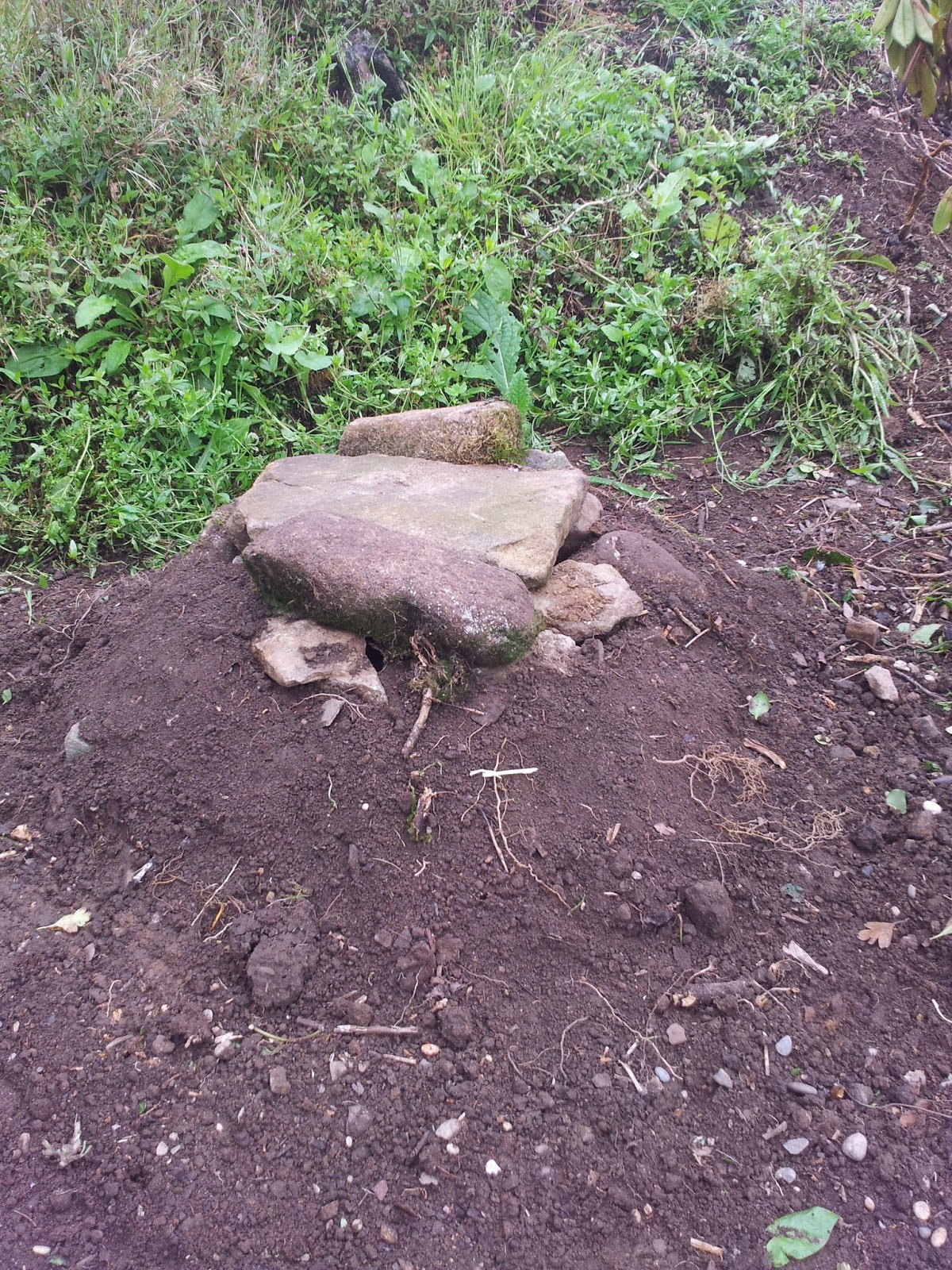It probably isn't the best time to be starting moving plants and planting out, but this time of year is quieter for me animal husbandry wise with the long days still and the weather is usually good - sunny days and rainy nights - and the ground is warm so I hope what I am doing survives. I have moved a fairly large tree fern from our tiny home garden which it has outgrown to the wooded glade. It was surprisingly difficult to get out the ground. No tap roots but a huge mass of fine spidery roots almost like hessian matting.
Having googled how to do it, I followed the instructions and ensured the ground was well watered and manured and have watered the treefern well since planting, but have to admit it is looking a little unhappy! Took a quick picture after planting whilst it was still looking luvverly. Unfortunately a northerly wind gave it a bit of a battering for 48 hours immediately after planting, so we will have to keep our fingers crossed. And my favourite acer which has survived in a pot for years in our small garden - but which always looses its leaves early - has also been given its own piece of ground and some freedom, so that is another to keep an eye on with the hope that planting out will help it keep its leaves longer next year.
Have finished a stretch of path to take campers safely up and down to the picnic area, instead of scrabbling up the side banks, planted some bulbs - although I am not sure what they are, we found them whilst digging and clearing the newest reclaimed area - so they will be a surprise in the spring and we also found some Tawny Mining Bees.
They were in the ground we were clearing which was full of ivy and periwinkle and rocks and stones and we didn't notice them until we had unearthed there larvae pods. We rescued what we could and fashioned a make shift home for them, which they don't seem to dislike too much. They have been there for 3 or 4 days now and they appear to be busily repairing what we disturbed.
According to our research Tawny mining bees (Andrena fulva or armata) are a species of the sand bee genus. The males are 10–12 mm (0.4–0.5 in) and the females 8–10 mm (0.3–0.4 in) long. Covered with fox red hair on their backs and black on their underside, they are not aggressive and seldom, if ever, sting. Indifferent about their nesting location, they are extremely fond of shadeless sunny places, but are also commonly found between tiles and stones in the garden and love well-cut lawns. The bees supposedly fly from March until June - so what ours are doing flying about end of August anyone knows.
Females mate in spring, after which the male dies and the female starts to build a nest. The nest is a vertical shaft in the ground of 200–300 mm (8–12 in), with several brood cells branching off it, and entrances are often surrounded by a volcano-like mound of excavated spoil. The female fills the cells with a mixture of nectar and pollen, laying an egg in each cell. The larva hatches and consumes the stored pollen and nectar, pupates within a few weeks and finally becomes an adult bee. The adult bees overwinter below ground in the burrow site. Then during the next spring or early summer the adults emerge, mate, and the females begin burrow excavation and the cycle continues.
Our colony definately has a female who is bigger, less hairy and slimmer than the males. But the males appear to be extremely busy little fellas, despite the time of year, which I suppose may be because we have distrubed them. It is true that we did not notice any activity before we unearthed their nest. Oh dear. Will keep you posted with what happens next.
.





No comments:
Post a Comment